There’s nothing like a steaming seafood stew to raise your spirits—and that’s exactly what this traditional dish does. Here’s our 6 favorite places to get the best cataplana in Lisbon!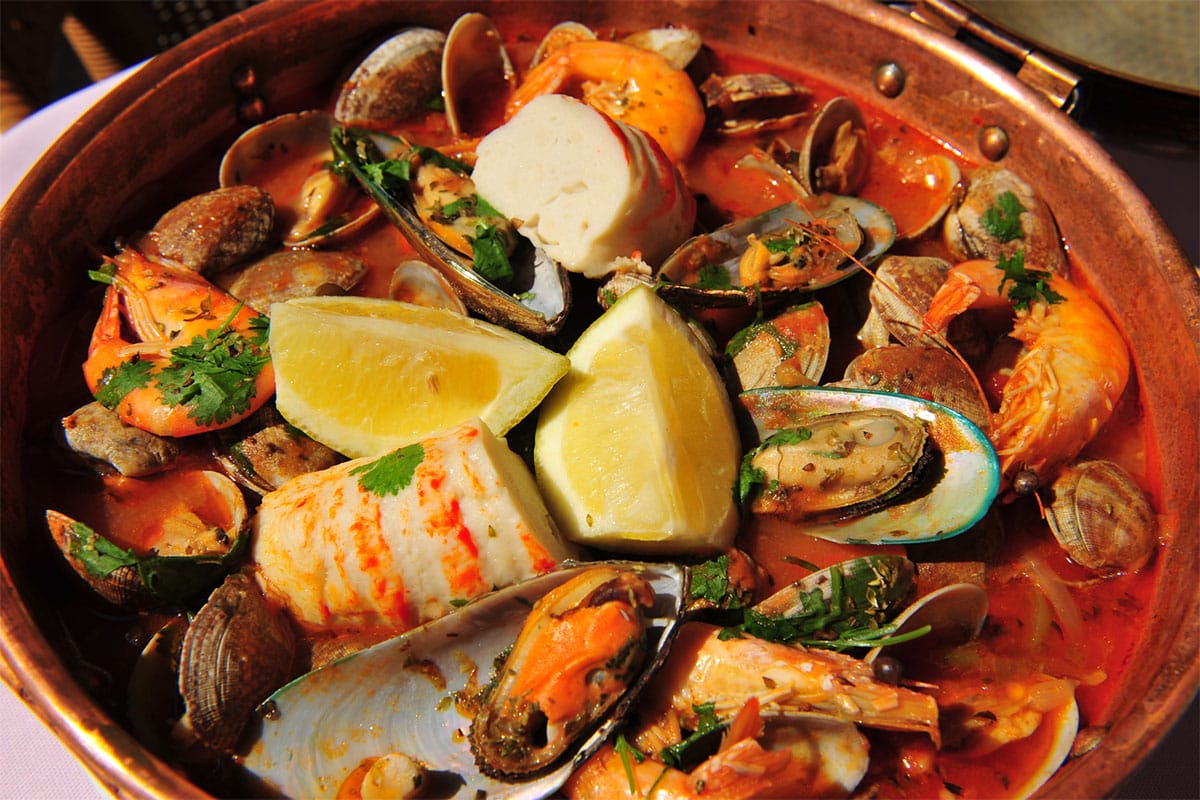
If you’ve ever been to a traditional Portuguese restaurant or eaten with a Portuguese family, you know how much this country loves seafood. It’s no wonder; much of it is coastal, with a history closely linked to maritime exploration. This is what infuses Lisbon with its seafaring spirit—and there’s perhaps no better culinary reflection of that identity than cataplana.
The best cataplana in Lisbon reflects this coastal legacy, bringing authentic flavors from the south of Portugal straight to your plate. So where can you find this amazing dish in Portugal’s capital? Here are our top six favorite restaurants in Lisbon to eat cataplana!
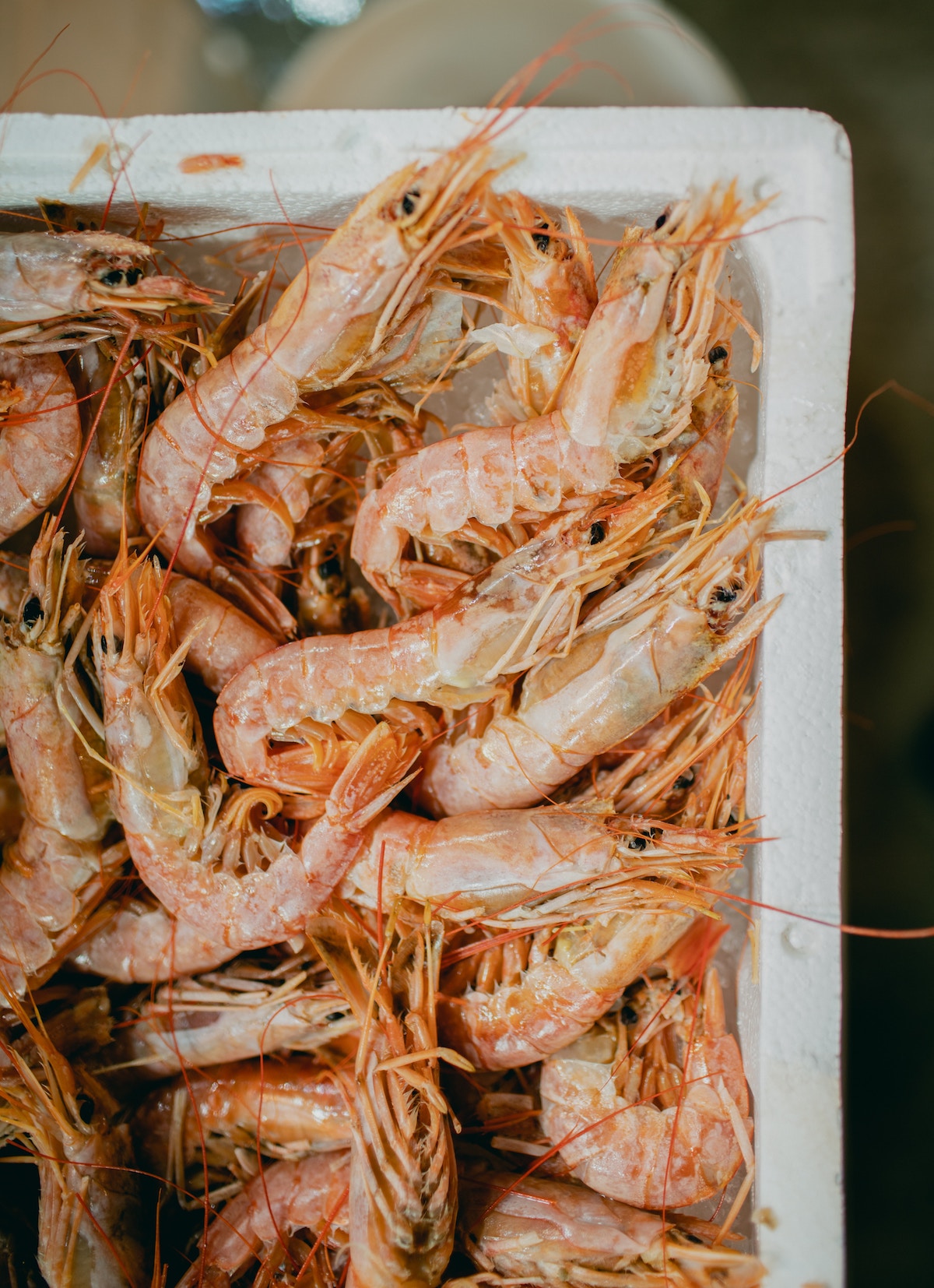
Table of Contents
1. Aqui Há Peixe
This place’s name literally means “there’s fish here”—but not just any fish. At Aqui Há Peixe, Chef Miguel Reino sources fresh seafood from the local market each day. The cataplana de frutos do mar is made with seafood, tomatoes, onions, garlic, white wine and herbs. It’s a simple recipe that lets the ingredients shine, served in a colorful and inviting atmosphere right in the middle of the Chiado neighborhood.
Want to check out other great spots to eat nearby? Here’s our top 7 restaurants in Chiado!
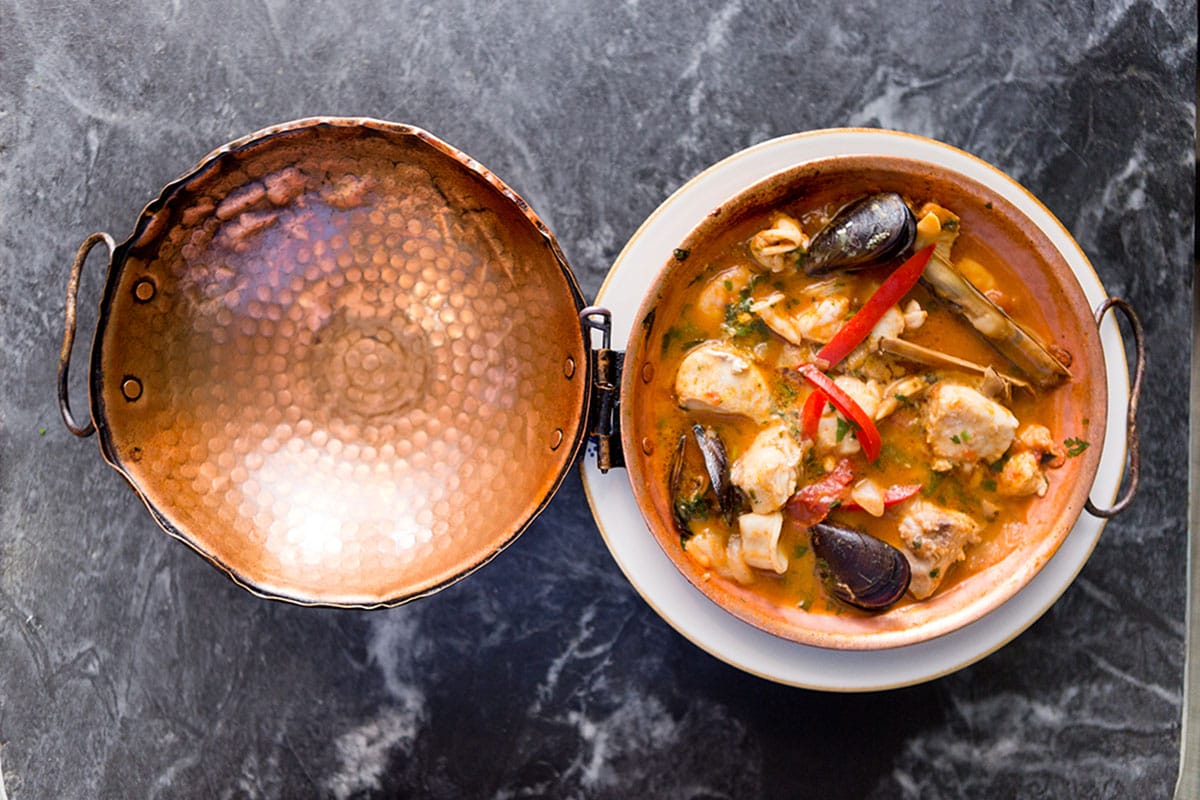
2. Peixaria da Esquina
This is a beloved local spot in Campo de Ourique, fusing creativity and tradition with the best local products. Peixaria da Esquina focuses firmly on seafood, including four different varieties of cataplana featuring fish, cod, shrimp and shellfish. They claim to serve “the best fish in the world,” and while that’s an ambitious statement, it’s certainly among the best seafood in Lisbon. You may have to come back several times to try it all.
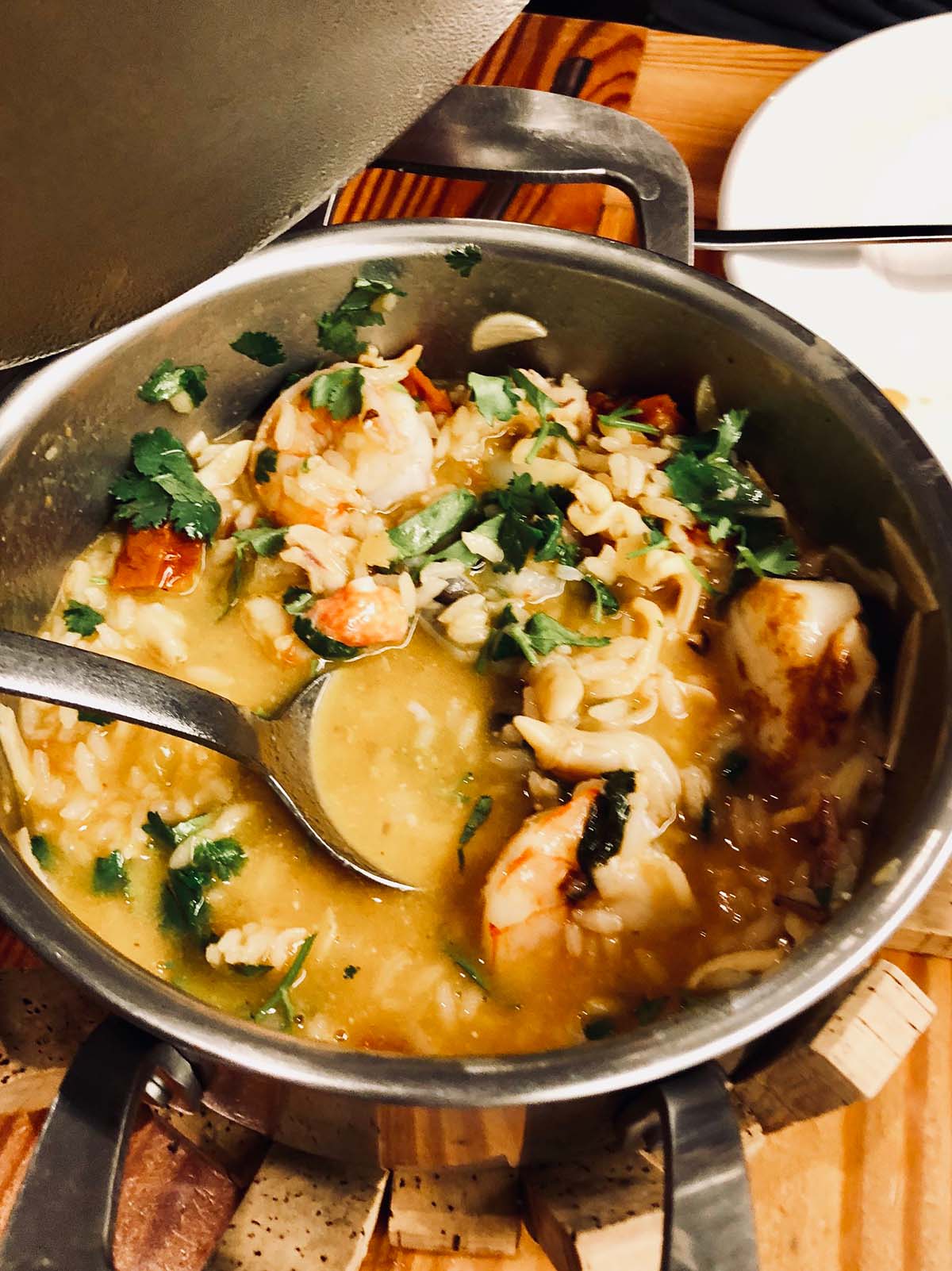
3. Cataplana do Bairro
As its name suggests, cataplana is the star of the show here. This casual neighborhood restaurant serves six different kinds of seafood cataplana, plus a vegetarian option, as well as rice dishes and other specialties. Cataplana do Bairro is the perfect place for a weekday lunch, offering a three-course menu with a drink and coffee for just €9.90. It’s proof that you don’t need to spend a lot to have an authentic experience.
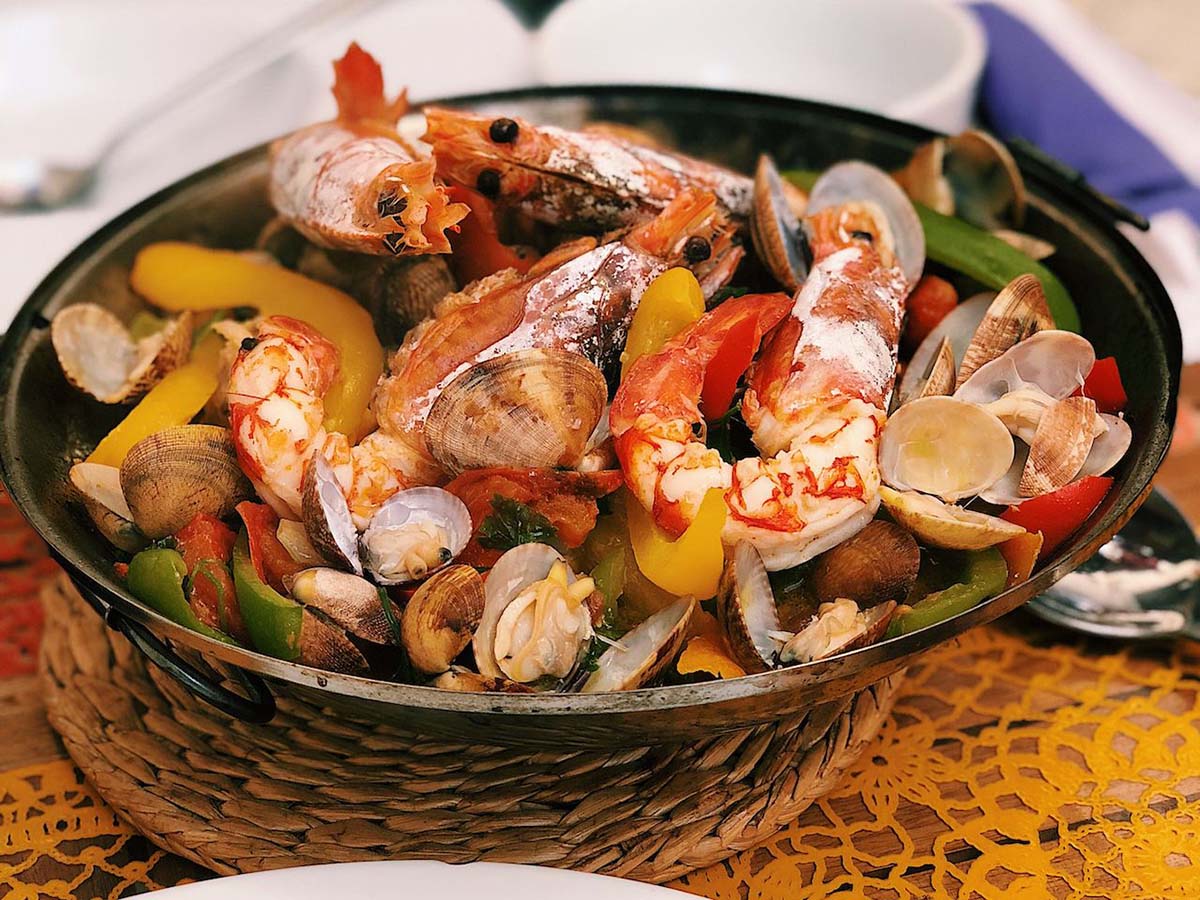
4. O Arco
It doesn’t get much more classic than O Arco, a traditional seafood restaurant in Lisbon’s Baixa neighborhood. Their cataplana is legendary, brimming with shrimp, mussels, clams and more. Prices are reasonable, portions are generous and the atmosphere is super authentic, with a soundtrack of old-school blues. You can expect personal service from the owner and his son to round out an awesome experience. This place is small and popular, so try to book in advance!

5. Gambrinus
Undoubtedly one of the best seafood restaurants in Lisbon, this is the kind of place where history suffuses every bite. Since 1937, Gambrinus has been welcoming high-profile public figures, local residents and tourists alike to enjoy its traditional cuisine and elegant ambiance. The house cataplana for two is a bit pricey, but here you’re paying for more than just the food itself. Settle in and admire the sophisticated decor as you savor each spoonful.
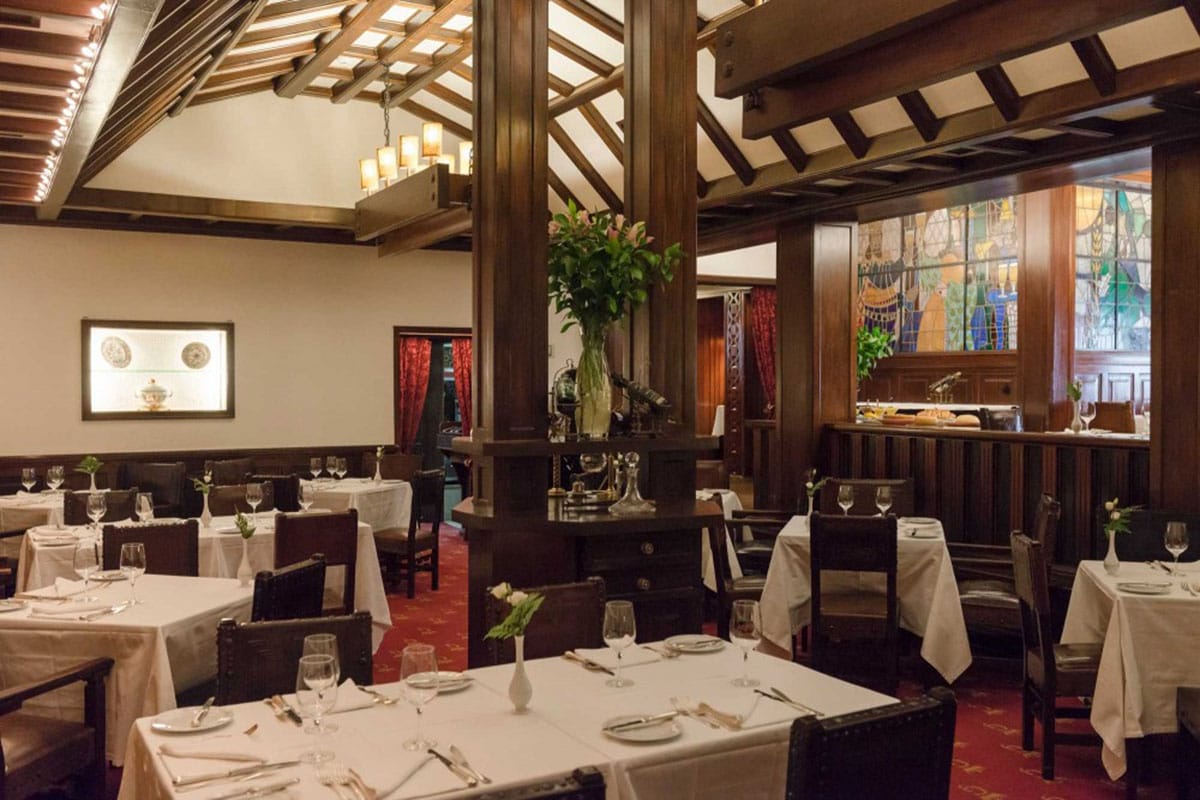
6. Farol de Santa Luzia
Located in Bairro Alto, this charming restaurant in Lisbon serves some of the city’s best cataplana, hands down. The cataplana de peixes à Farol comes with shrimp, clams, tomatoes, onions, peppers and plenty of garlic. Farol de Santa Luzia also offers a version with pork loin, chouriço and bacon—yes, cataplana can also include meat! Both are served in beautiful copper pans, a final detail that makes each meal here truly memorable.

Explore the Best Food in Bairro Alto on Tour
Explore Lisbon’s history, culture, and nightlife in Bairro Alto on our Lisbon Food & Wine Tour! We cut through the tourist menus and overwhelming options and guide you to the best bars, tascas, and pastry shops in the neighborhood. Get ready to discover the most incredible wines, cocktails, petiscos, and even make some new friends along the way in this colorful and cultural corner of the city.
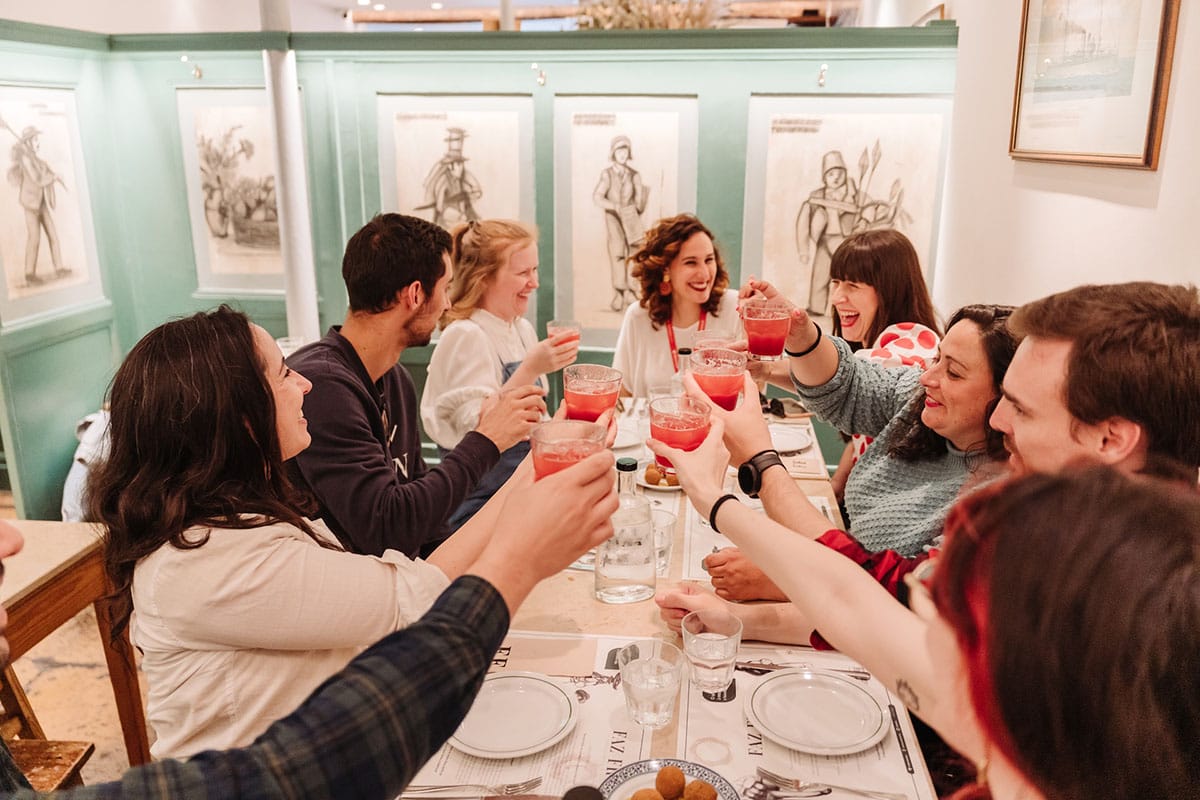
Featured Review: Lisbon Food & Wine Tour
⭐⭐⭐⭐⭐ “Alicia was fantastic and so personable! She engaged all of us and by the end of the food tour. I made several new friends. It really was like a night out with friends! The restaurants and tastings were outstanding. I highly recommend this tour and Alicia as a guide.”
– Carolyn on Tripadvisor
Best Places for Cataplana in Lisbon FAQs
What is cataplana?
Cataplana takes its name from the vessel it’s cooked and served in: a clamshell-shaped container made of copper, aluminum or steel. The ingredients are placed in the bottom half, the top half is closed and sealed, it’s placed over heat and the food is left to slowly steam. Because this technique originated in the coastal Algarve region, it’s traditionally used to make fish or seafood (although it can also be used for other dishes).
Is cataplana a Lisbon-specific dish?
While cataplana originates from the Algarve region in southern Portugal, it’s widely enjoyed in Lisbon thanks to the city’s vibrant seafood scene. Many Lisbon restaurants put their own twist on the classic while staying true to its coastal roots.
What seafood is commonly used in cataplana?
Cataplana often features clams, prawns, mussels, and firm white fish, and sometimes includes chouriço or other seasonings for extra depth. The exact combination varies by restaurant, but the result is always a rich, fragrant seafood stew.
Is cataplana suitable for sharing?
Yes, cataplana is traditionally served family-style and perfect for sharing at the table with friends or family. Its generous portions and mix of seafood make it an ideal centerpiece dish for a leisurely lunch or dinner.
What should I drink with cataplana?
Cataplana pairs beautifully with Portuguese white wines such as Vinho Verde or Alvarinho, whose acidity and freshness balance the richness of the seafood. A crisp rosé or a light, citrusy beer are also great choices alongside this hearty dish.
Last Updated on February 2, 2026 by Emma Fajcz | Published: May 8, 2020
There’s nothing like a steaming seafood stew to raise your spirits—and that’s exactly what this traditional dish does. Here’s our 6 favorite places to get the best cataplana in Lisbon!

If you’ve ever been to a traditional Portuguese restaurant or eaten with a Portuguese family, you know how much this country loves seafood. It’s no wonder; much of it is coastal, with a history closely linked to maritime exploration. This is what infuses Lisbon with its seafaring spirit—and there’s perhaps no better culinary reflection of that identity than cataplana.
The best cataplana in Lisbon reflects this coastal legacy, bringing authentic flavors from the south of Portugal straight to your plate. So where can you find this amazing dish in Portugal’s capital? Here are our top six favorite restaurants in Lisbon to eat cataplana!

1. Aqui Há Peixe
This place’s name literally means “there’s fish here”—but not just any fish. At Aqui Há Peixe, Chef Miguel Reino sources fresh seafood from the local market each day. The cataplana de frutos do mar is made with seafood, tomatoes, onions, garlic, white wine and herbs. It’s a simple recipe that lets the ingredients shine, served in a colorful and inviting atmosphere right in the middle of the Chiado neighborhood.
Want to check out other great spots to eat nearby? Here’s our top 7 restaurants in Chiado!

2. Peixaria da Esquina
This is a beloved local spot in Campo de Ourique, fusing creativity and tradition with the best local products. Peixaria da Esquina focuses firmly on seafood, including four different varieties of cataplana featuring fish, cod, shrimp and shellfish. They claim to serve “the best fish in the world,” and while that’s an ambitious statement, it’s certainly among the best seafood in Lisbon. You may have to come back several times to try it all.

3. Cataplana do Bairro
As its name suggests, cataplana is the star of the show here. This casual neighborhood restaurant serves six different kinds of seafood cataplana, plus a vegetarian option, as well as rice dishes and other specialties. Cataplana do Bairro is the perfect place for a weekday lunch, offering a three-course menu with a drink and coffee for just €9.90. It’s proof that you don’t need to spend a lot to have an authentic experience.

4. O Arco
It doesn’t get much more classic than O Arco, a traditional seafood restaurant in Lisbon’s Baixa neighborhood. Their cataplana is legendary, brimming with shrimp, mussels, clams and more. Prices are reasonable, portions are generous and the atmosphere is super authentic, with a soundtrack of old-school blues. You can expect personal service from the owner and his son to round out an awesome experience. This place is small and popular, so try to book in advance!

5. Gambrinus
Undoubtedly one of the best seafood restaurants in Lisbon, this is the kind of place where history suffuses every bite. Since 1937, Gambrinus has been welcoming high-profile public figures, local residents and tourists alike to enjoy its traditional cuisine and elegant ambiance. The house cataplana for two is a bit pricey, but here you’re paying for more than just the food itself. Settle in and admire the sophisticated decor as you savor each spoonful.

6. Farol de Santa Luzia
Located in Bairro Alto, this charming restaurant in Lisbon serves some of the city’s best cataplana, hands down. The cataplana de peixes à Farol comes with shrimp, clams, tomatoes, onions, peppers and plenty of garlic. Farol de Santa Luzia also offers a version with pork loin, chouriço and bacon—yes, cataplana can also include meat! Both are served in beautiful copper pans, a final detail that makes each meal here truly memorable.

Explore the Best Food in Bairro Alto on Tour
Explore Lisbon’s history, culture, and nightlife in Bairro Alto on our Lisbon Food & Wine Tour! We cut through the tourist menus and overwhelming options and guide you to the best bars, tascas, and pastry shops in the neighborhood. Get ready to discover the most incredible wines, cocktails, petiscos, and even make some new friends along the way in this colorful and cultural corner of the city.

Featured Review: Lisbon Food & Wine Tour
⭐⭐⭐⭐⭐ “Alicia was fantastic and so personable! She engaged all of us and by the end of the food tour. I made several new friends. It really was like a night out with friends! The restaurants and tastings were outstanding. I highly recommend this tour and Alicia as a guide.”
– Carolyn on Tripadvisor
Best Places for Cataplana in Lisbon FAQs
What is cataplana?
Cataplana takes its name from the vessel it’s cooked and served in: a clamshell-shaped container made of copper, aluminum or steel. The ingredients are placed in the bottom half, the top half is closed and sealed, it’s placed over heat and the food is left to slowly steam. Because this technique originated in the coastal Algarve region, it’s traditionally used to make fish or seafood (although it can also be used for other dishes).
Is cataplana a Lisbon-specific dish?
While cataplana originates from the Algarve region in southern Portugal, it’s widely enjoyed in Lisbon thanks to the city’s vibrant seafood scene. Many Lisbon restaurants put their own twist on the classic while staying true to its coastal roots.
What seafood is commonly used in cataplana?
Cataplana often features clams, prawns, mussels, and firm white fish, and sometimes includes chouriço or other seasonings for extra depth. The exact combination varies by restaurant, but the result is always a rich, fragrant seafood stew.
Is cataplana suitable for sharing?
Yes, cataplana is traditionally served family-style and perfect for sharing at the table with friends or family. Its generous portions and mix of seafood make it an ideal centerpiece dish for a leisurely lunch or dinner.
What should I drink with cataplana?
Cataplana pairs beautifully with Portuguese white wines such as Vinho Verde or Alvarinho, whose acidity and freshness balance the richness of the seafood. A crisp rosé or a light, citrusy beer are also great choices alongside this hearty dish.









